From the Principal
Welcome to Ivanhoe Picnic is on the 18th of March.

From the Principal
Welcome to Ivanhoe Picnic is on the 18th of March.
Our school values
Our school values provide a framework in which individuals and community can grow and develop safely. While we expect appropriate behaviour from our students sometimes these behaviours have to be practiced and learned. Playing fairly and making good choices do not always come naturally and sometimes the conversations with particularly young children have to be practiced over and over again before the messages stick.
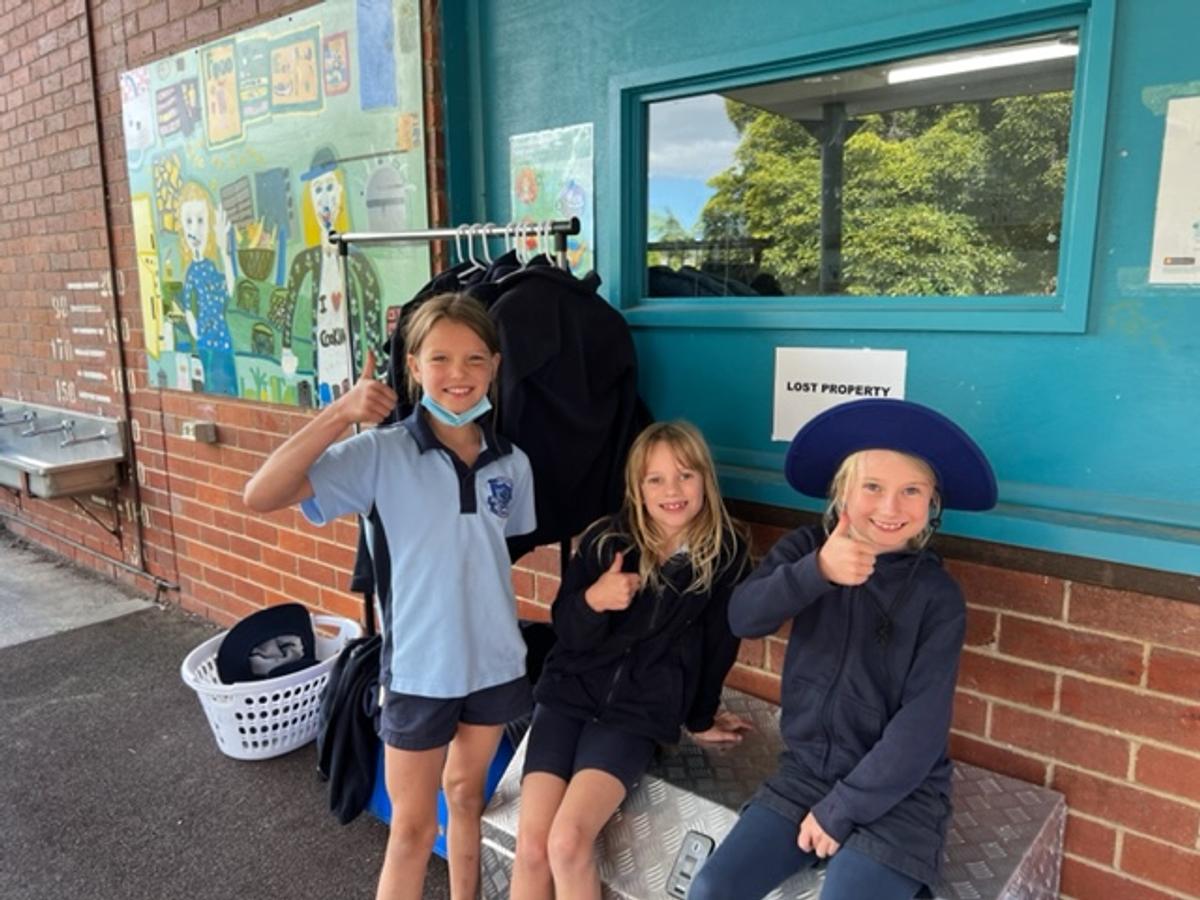
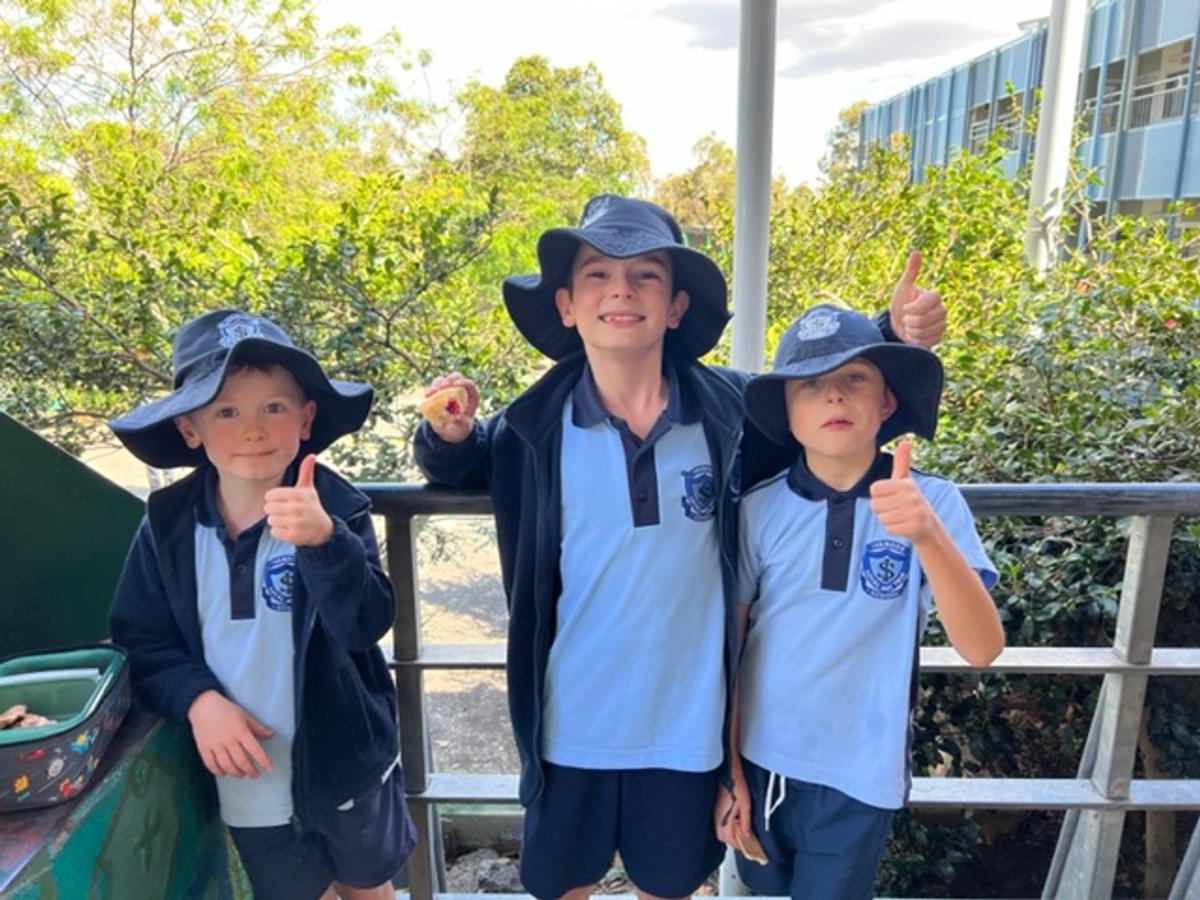
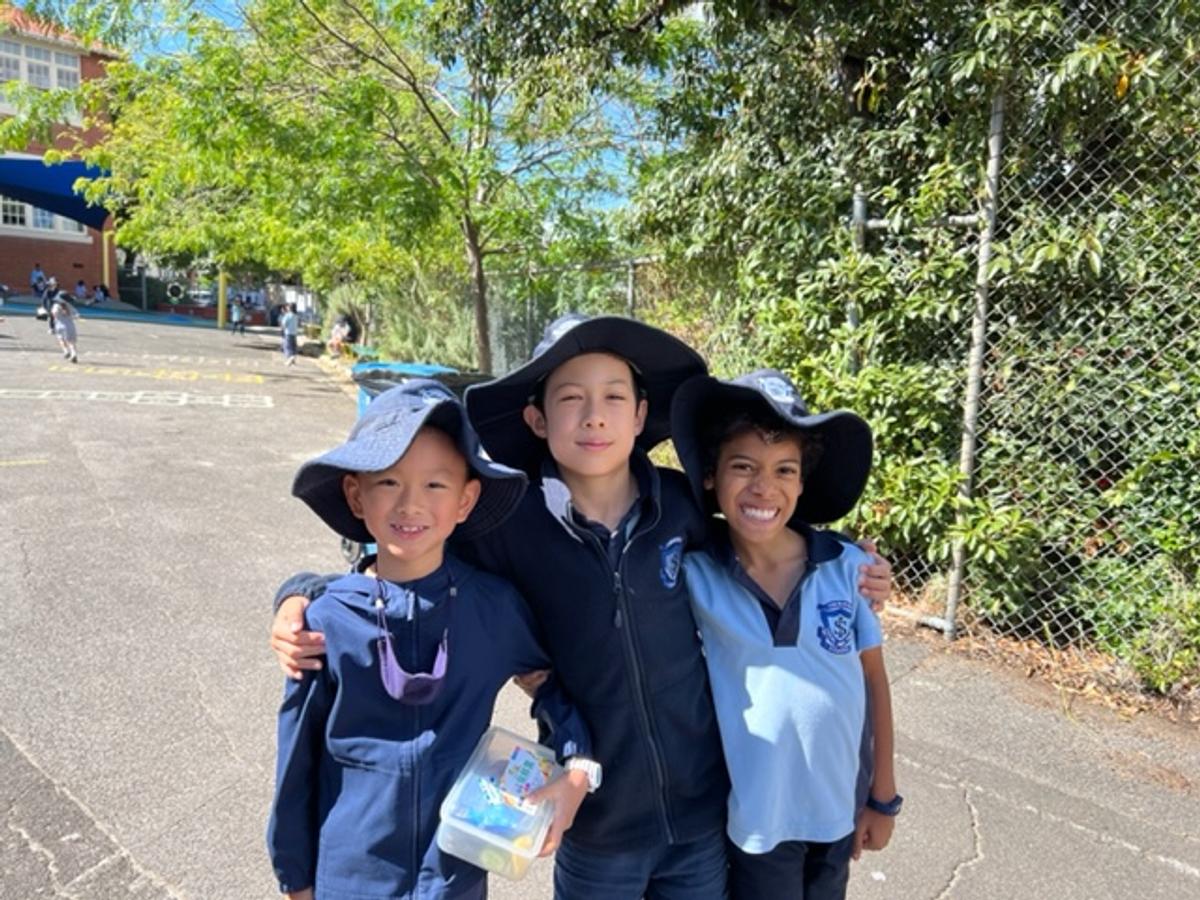
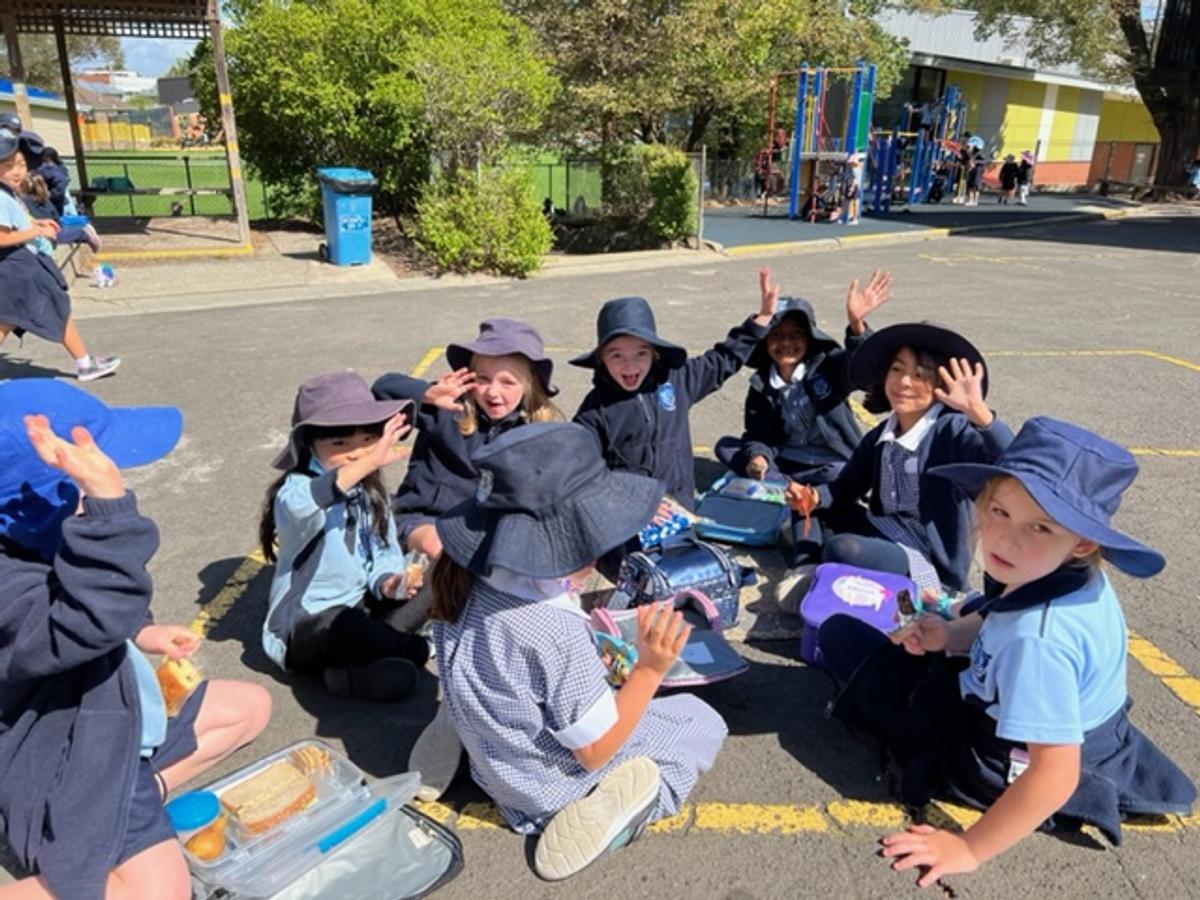
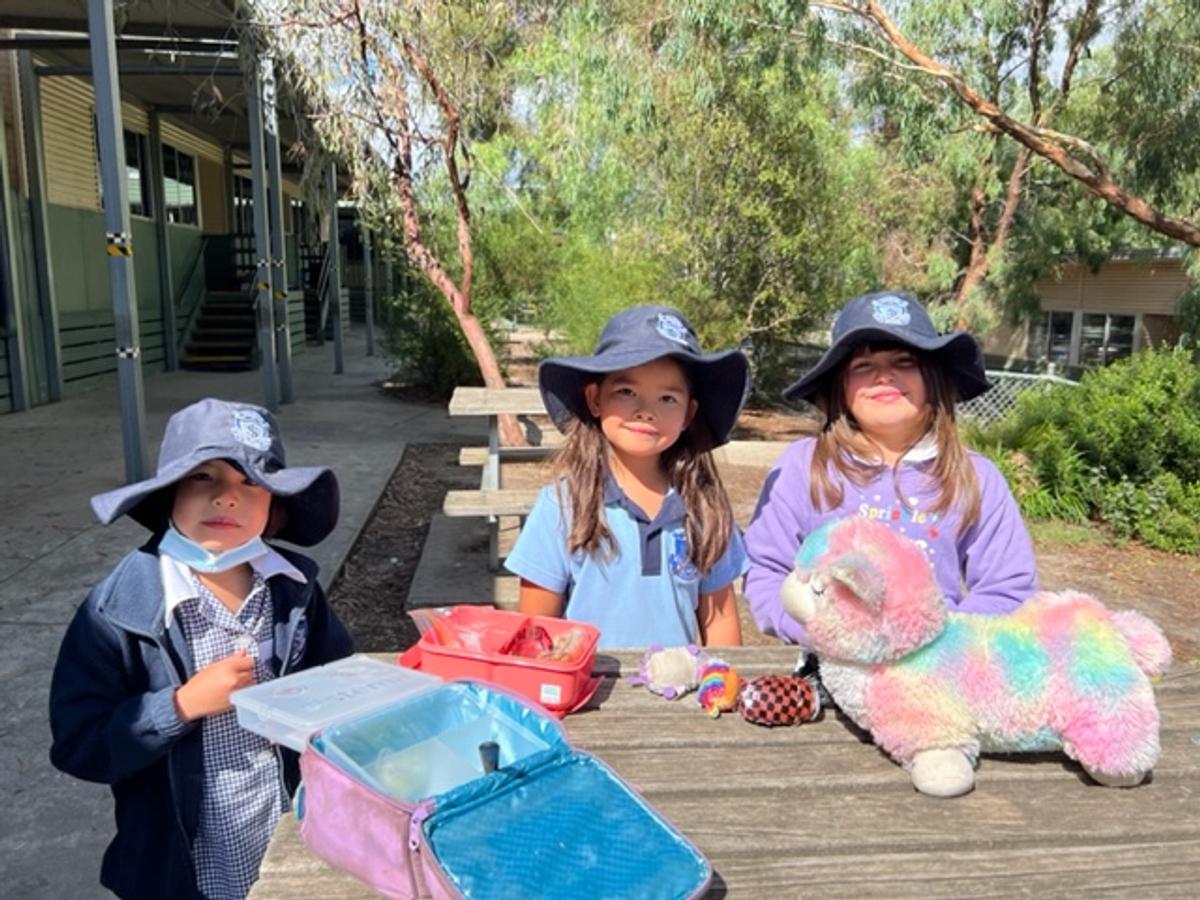
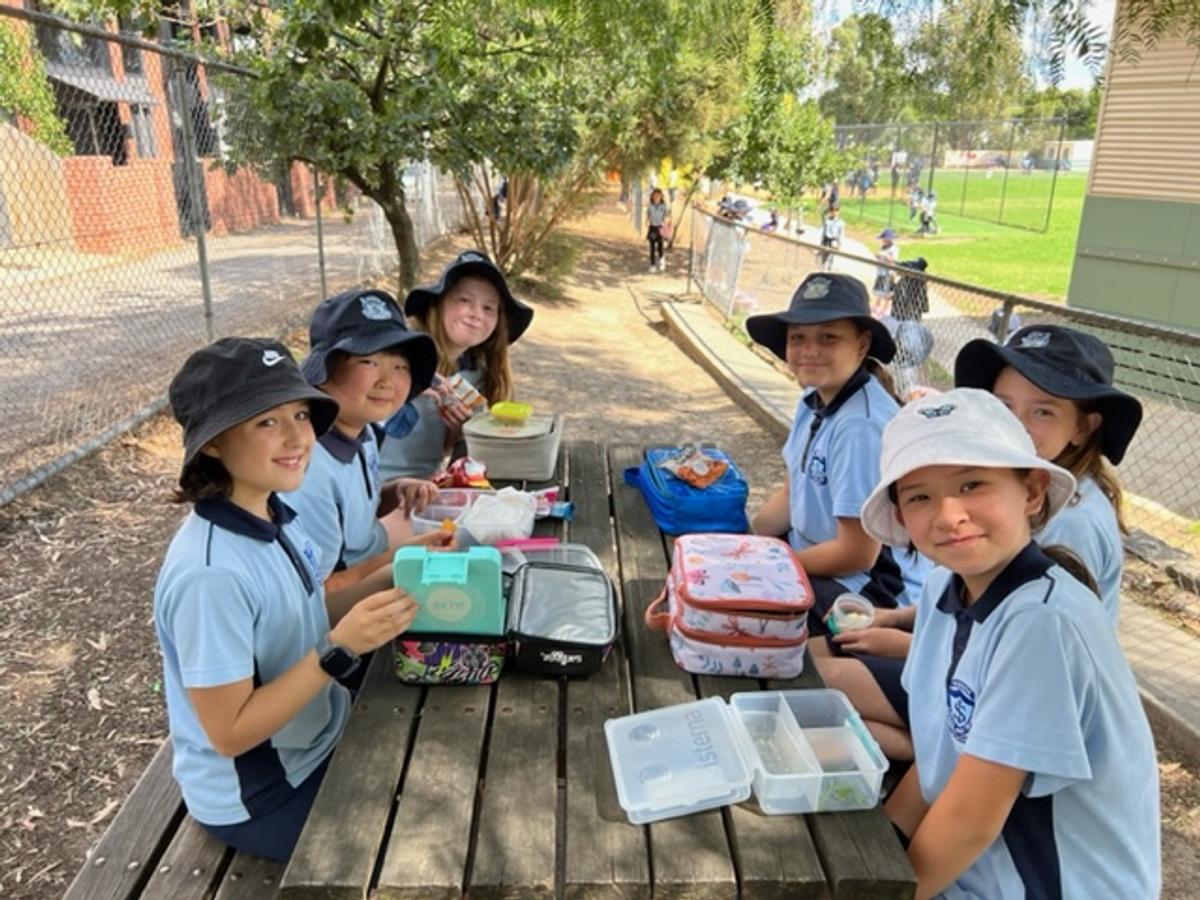
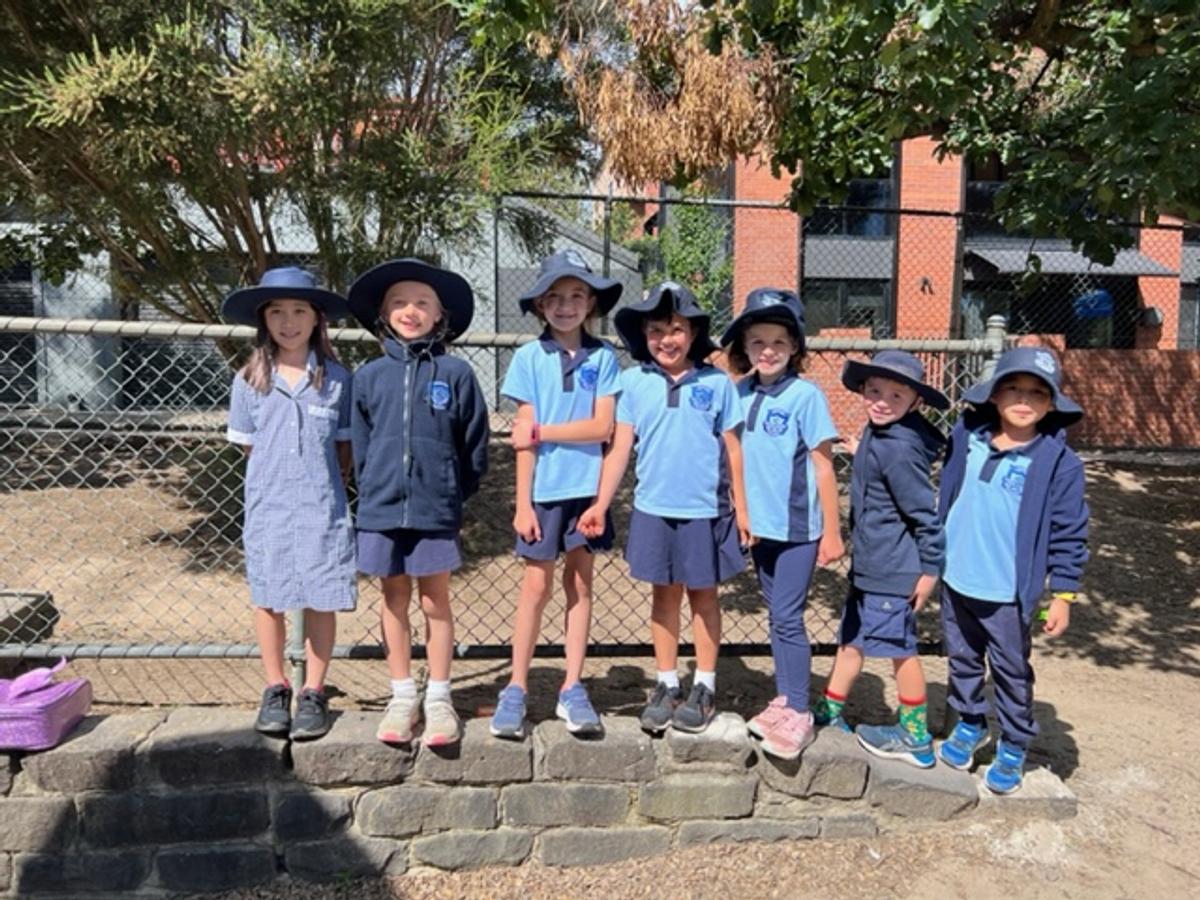
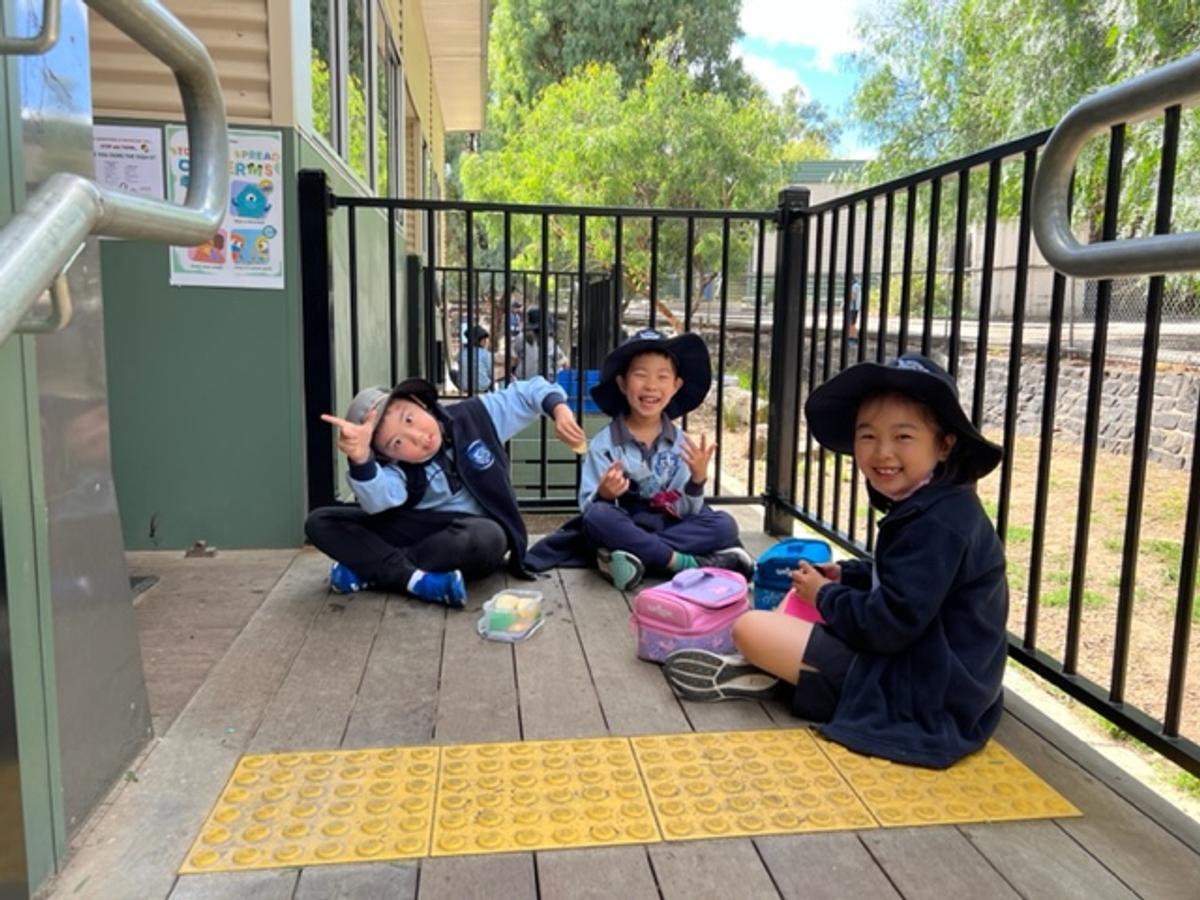
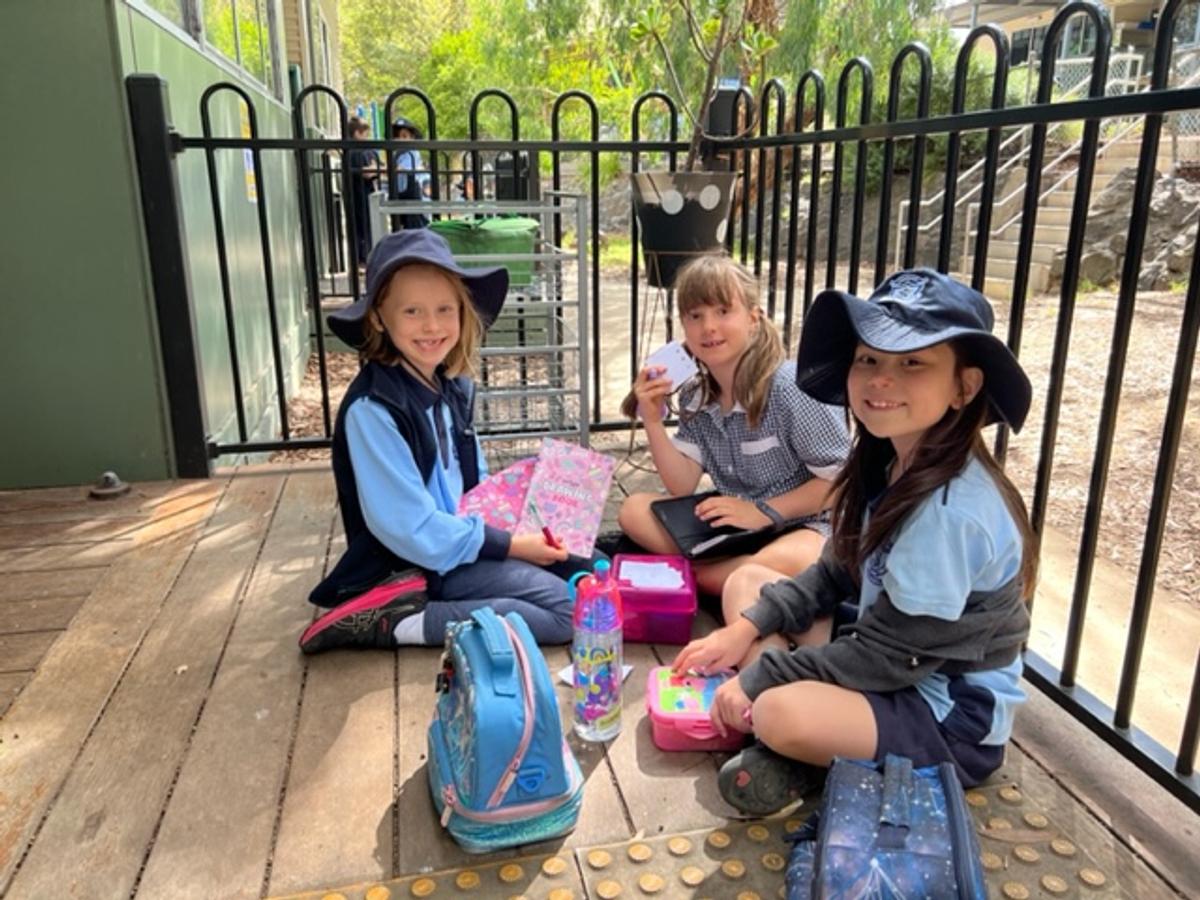
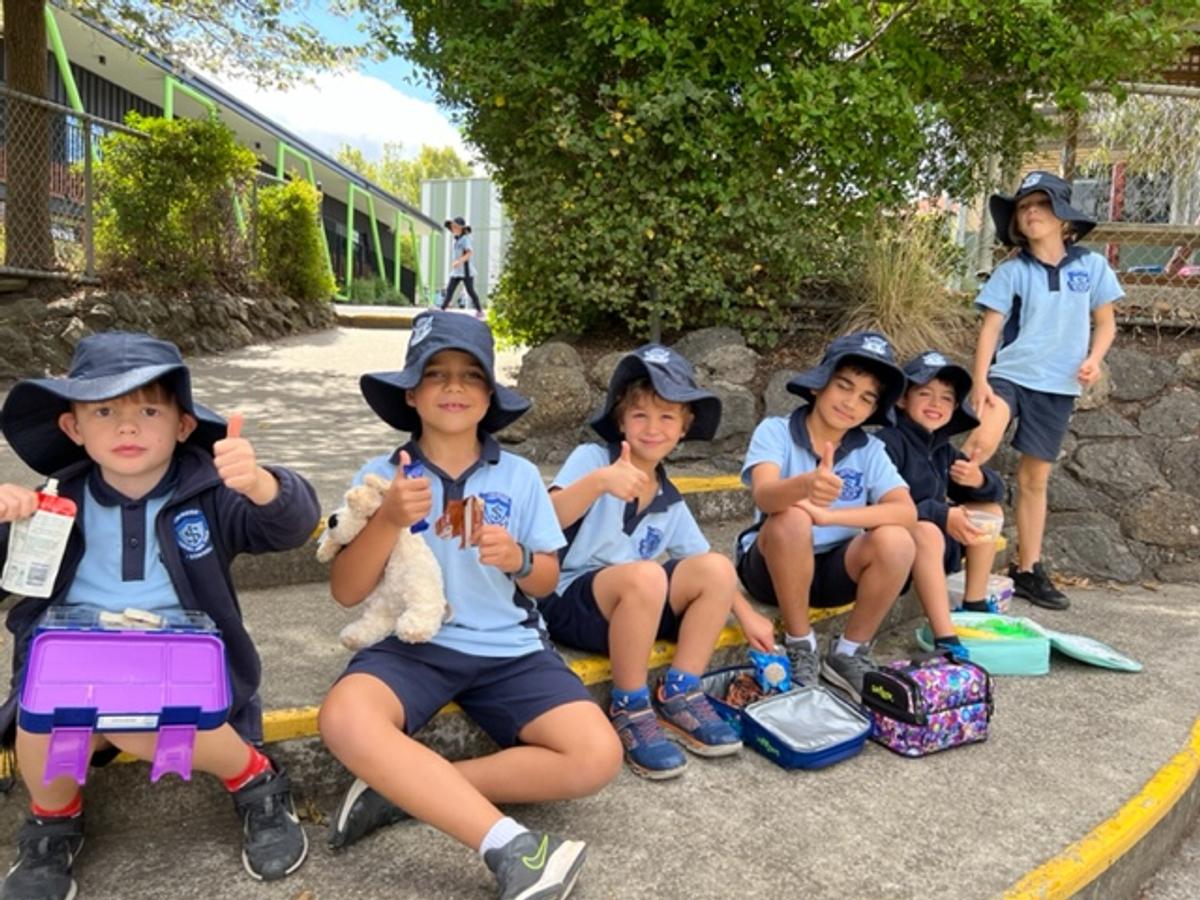
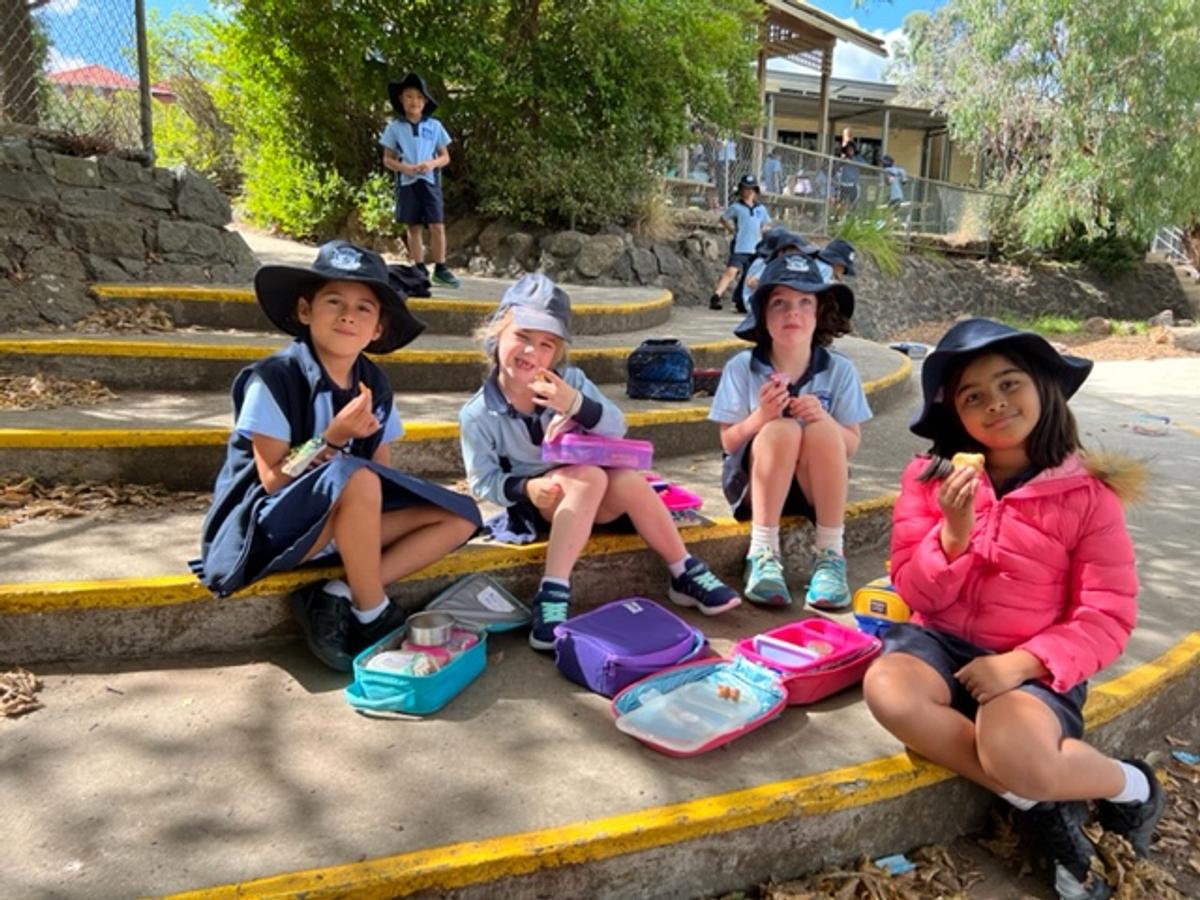
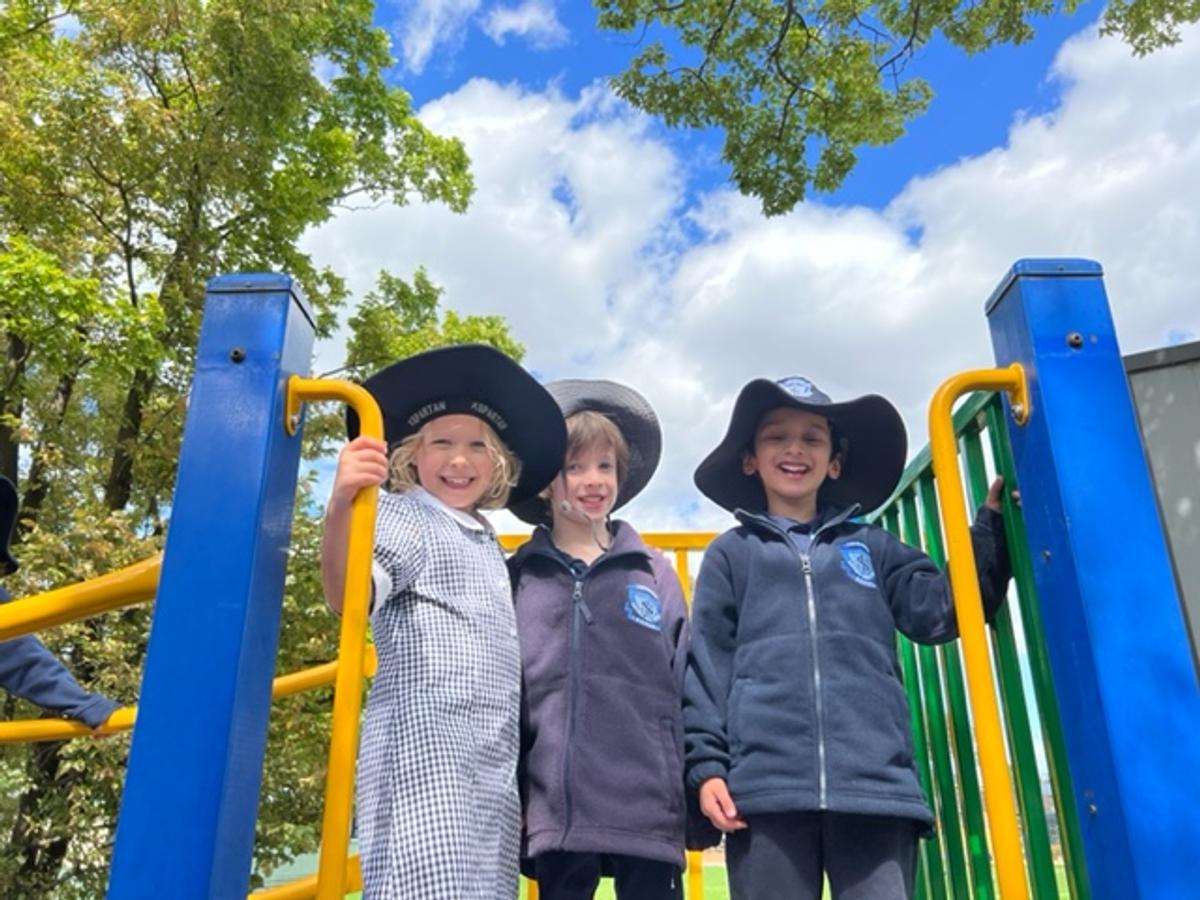
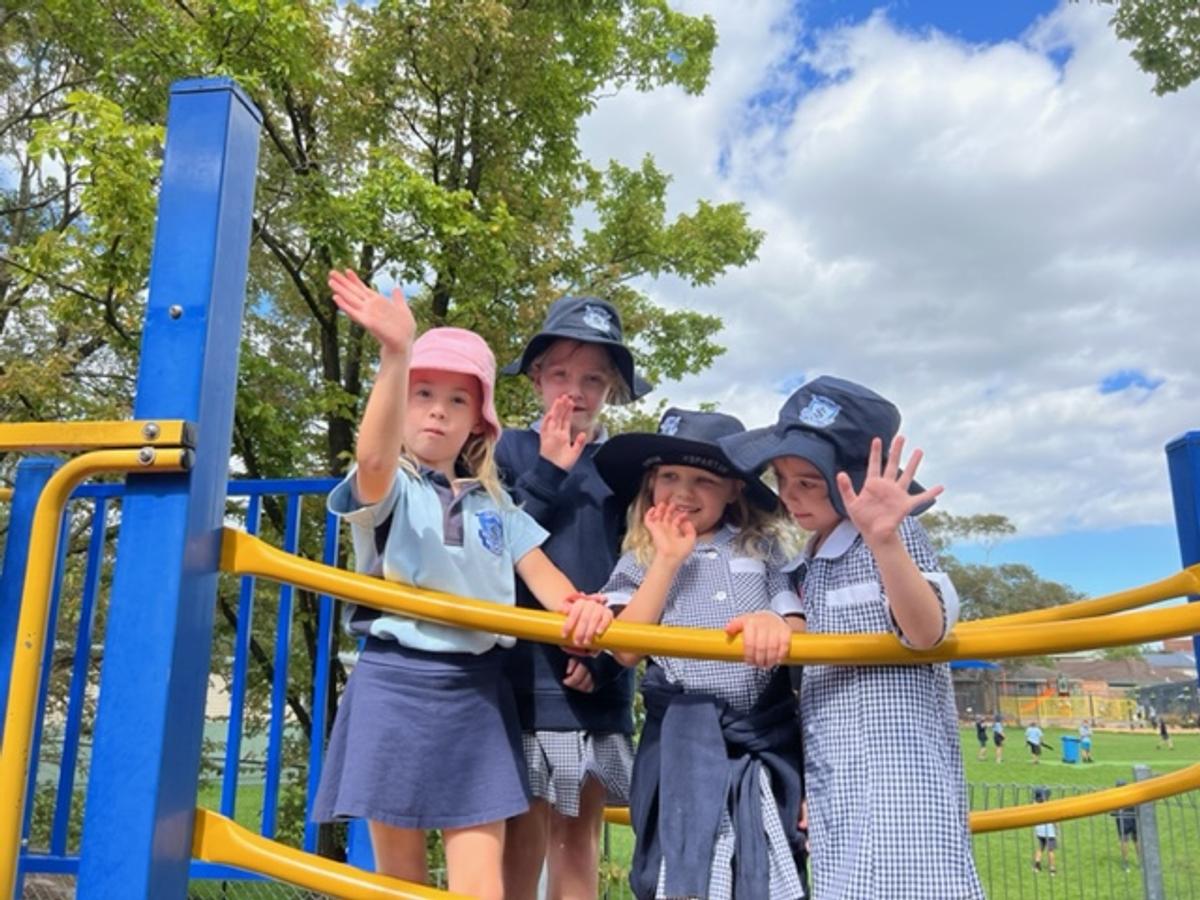
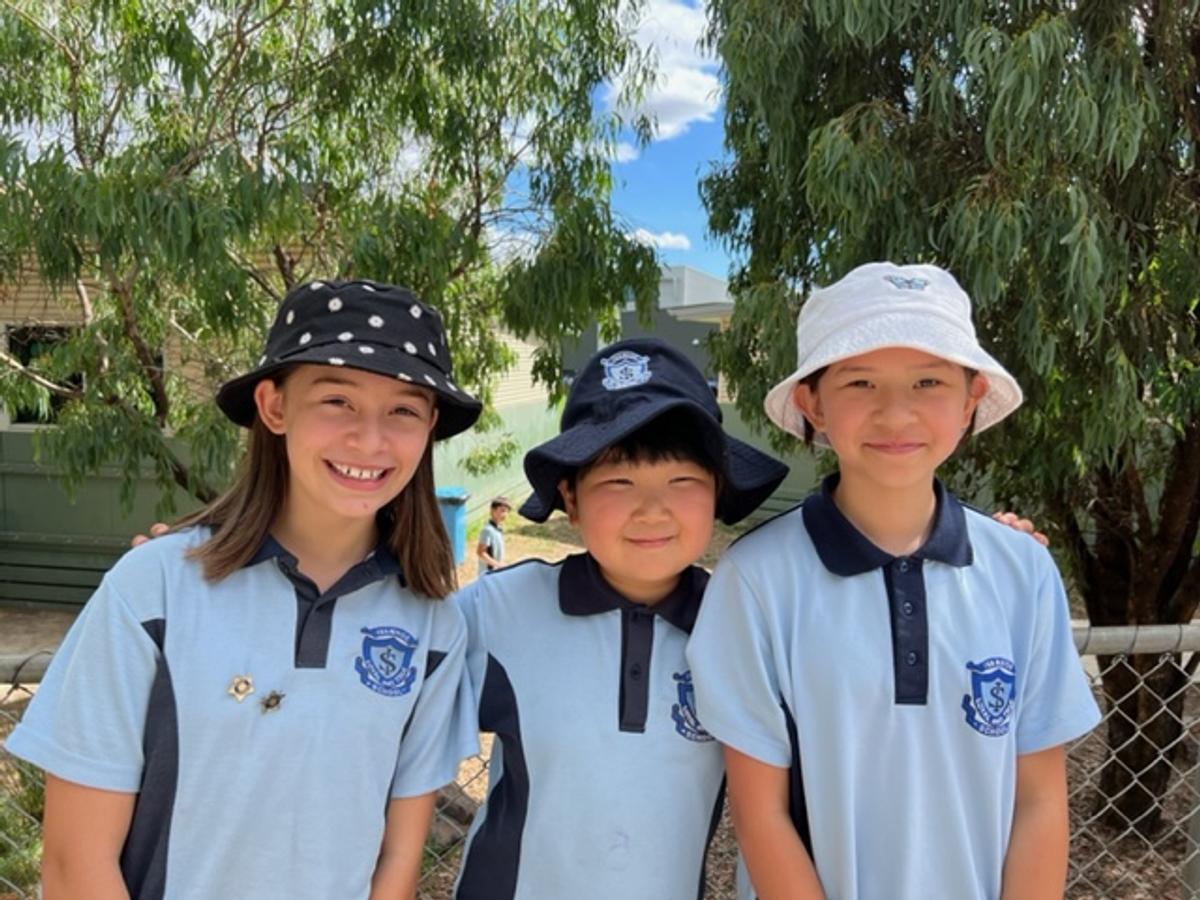














The importance of being a good friend.
I consider myself very fortunate to be a Principal that rarely has to speak to our senior students regarding inappropriate behaviour or actions. This is because we have all, students, staff and parents, worked together over time and helped people to understand our school values and enabled them to be put into practice.
Our younger students need the same time to grow and develop the values and attitudes that reflect our exceptional Australian society and the opportunities that are afforded us.
Behaviours and actions that physically or mentally hurt others must be addressed, so we apply what we perceive to be logical consequences and ask that the values and acceptable behaviours we are trying to model and teach are followed up at home.
You have heard the expression "It takes a village to raise a child". The following is adapted from materials from the Victorian Government's advice on looking after your child's wellbeing.
Set rules and boundaries
Clear rules and boundaries help children and young people feel safe. Involve your child in making the rules and they will be more likely to stick to them. Negotiating rules is a way of showing you respect their growing maturity. Talk to your child about the school's rules and how they are there for everyone's safety and wellbeing.
Wellbeing comes from physical, mental and emotional health.
For children and young people, there are many things that build positive wellbeing. Wellbeing can come from: • Understanding and managing their emotions • Having good relationships • Experiencing a sense of accomplishment • Using our strengths • Taking part in healthy activities, getting lots of sleep and eating well. There are a range of things you can do at home to help build and sustain your child’s wellbeing.
Praise, encouragement and positive attention
Praise helps your child feel good about themselves, which boosts self-esteem and confidence. It can also encourage good behaviour. You can: • Give your child praise when they behave in ways that you want to encourage • Give your child attention. Play a game with them, do an activity together, send them a friendly message in their lunch box, explore their interests • Let your child know you are proud of them.
Positive self-talk
Self-talk is the way we talk to ourselves with our inner voice. Positive self-talk is when we say positive things to ourselves. Self-talk has a big impact on how we feel and what we do. Encouraging your child to talk to themselves in a kind and positive way can help improve their wellbeing and help them manage stress. When you hear them speaking about themselves that isn’t kind, you can: • Draw it to their attention • Ask them if what they are saying is true • Get them to think of a more helpful thought • Encourage your child to ‘speak’ to themselves the way they would speak to a best friend • Regularly remind your child of their strengths and accomplishments.
Maintain good relationships
A positive relationship with your child is critical to supporting wellbeing. • Share family memories and stories together • Try to eat a meal together each night • Establish and maintain family rituals and routines • Social connections are vital for your child’s wellbeing. Helping your child stay connected to friends is important.
The good news is that we can all play a big role in a child's development just by modelling respect and our other values and teaching every child to follow suit.
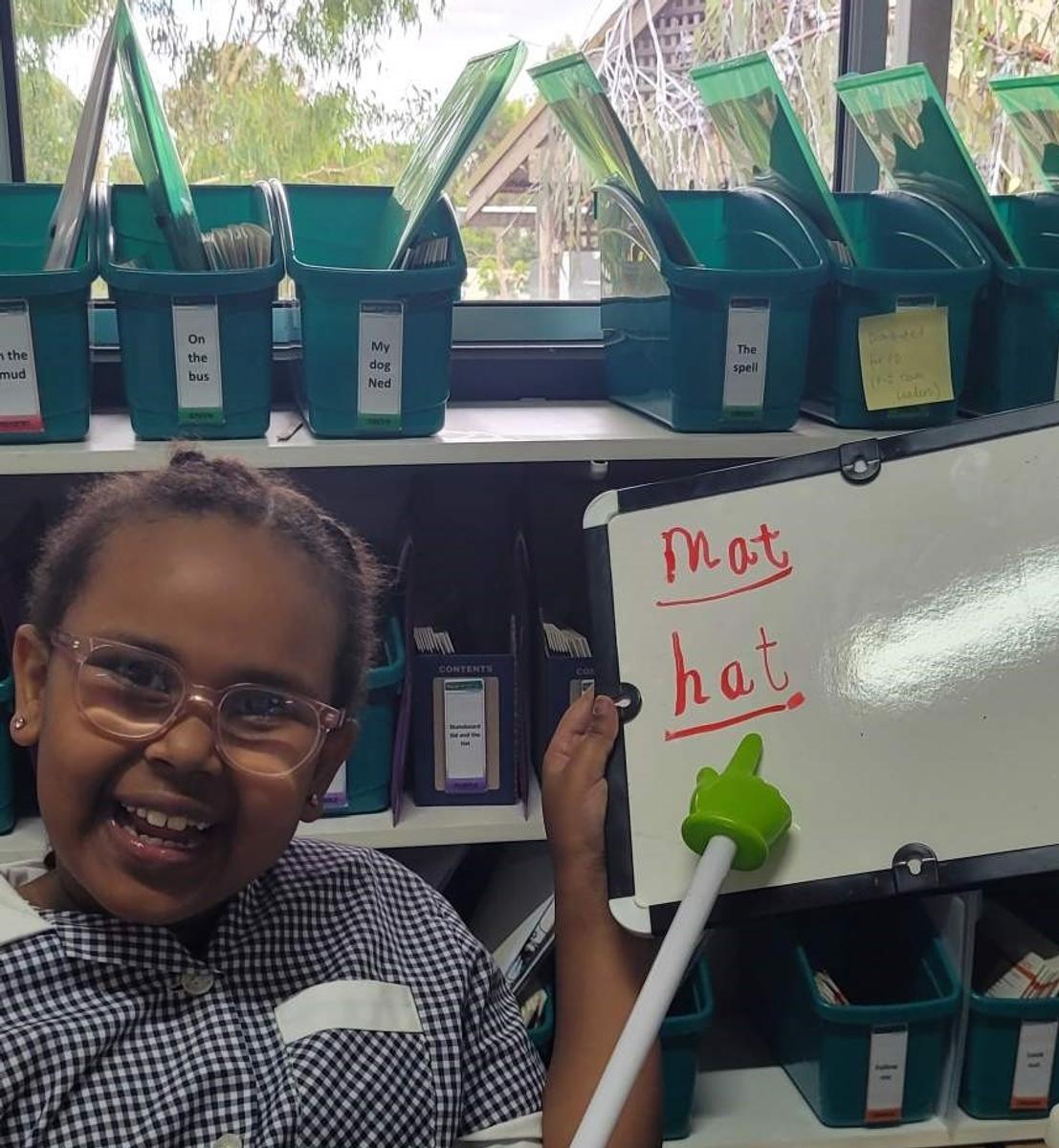

Read, Write, Inc is one of our very successful literacy initiatives.
This program is kicking learning goals across the school. One of our teachers, Mr McKay was so thrilled with the progress Hana G made in his lesson that he sent me this photo of Hana enjoying learning.
Hana is this week's CYBG recipient.
Keep up the great work!
With your child outgrowing their school gear you might consider purchasing one of our many items from the school second hand uniform shop. Many of our families donate items that are in great condition but no longer fit. This means we can help families by putting them back in circulation at exceptionally low prices. At the moment we have the following for sale: Polar Fleece Jackets $5, Bags $5, Uniform T-Shirt $3, Uniform Dresses $3, Skirts, Shorts & Pants $3, Hats $3, Drink bottles $1. Please contact the school office for details.
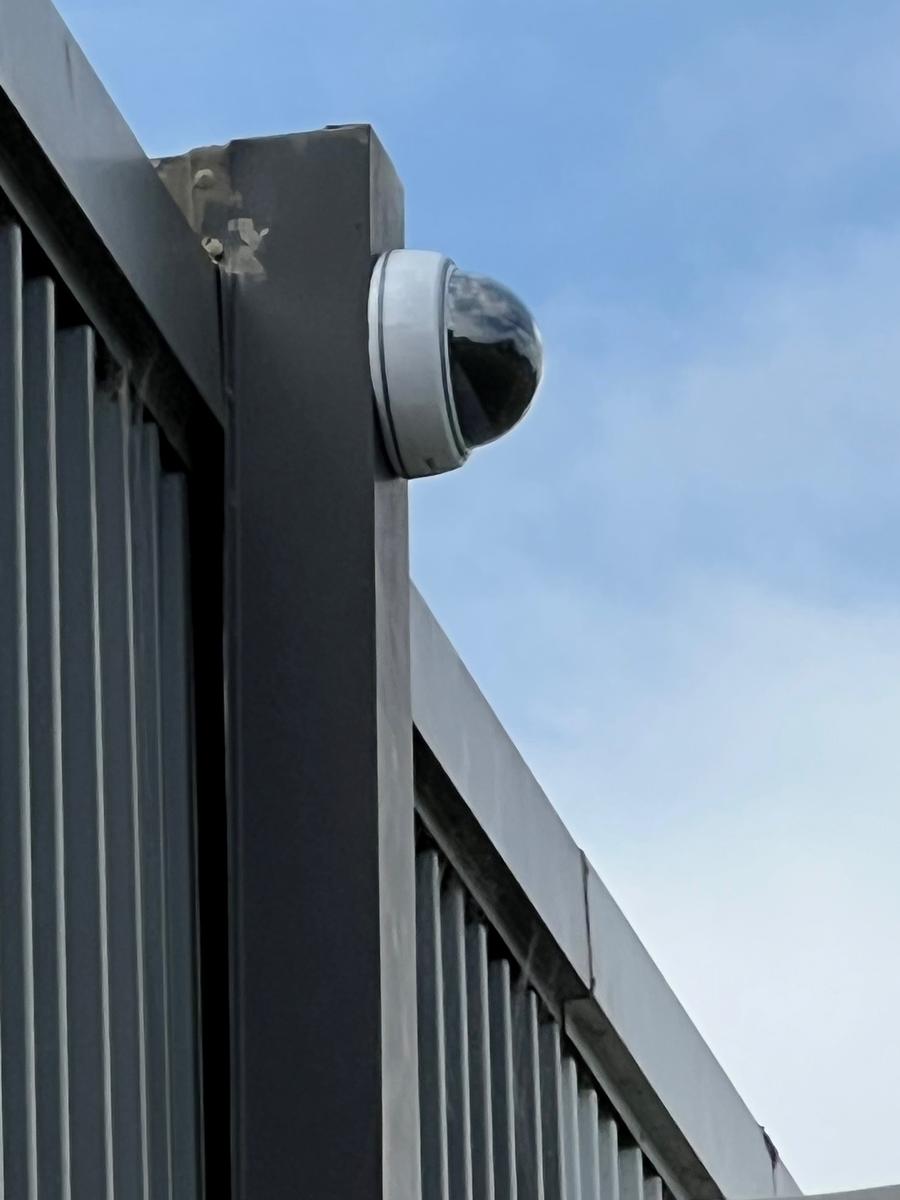

I am very pleased to report that we have not had any incidents of "pranking" or interference with bicycles since the staff have spoken with the students.
Occasionally bikes are left at school overnight and while on the odd occasion I have seen them and put them inside a building, I do not go looking for them. In the past bicycles have been stolen from the school grounds. Please lock them up during the day and take them home at night.
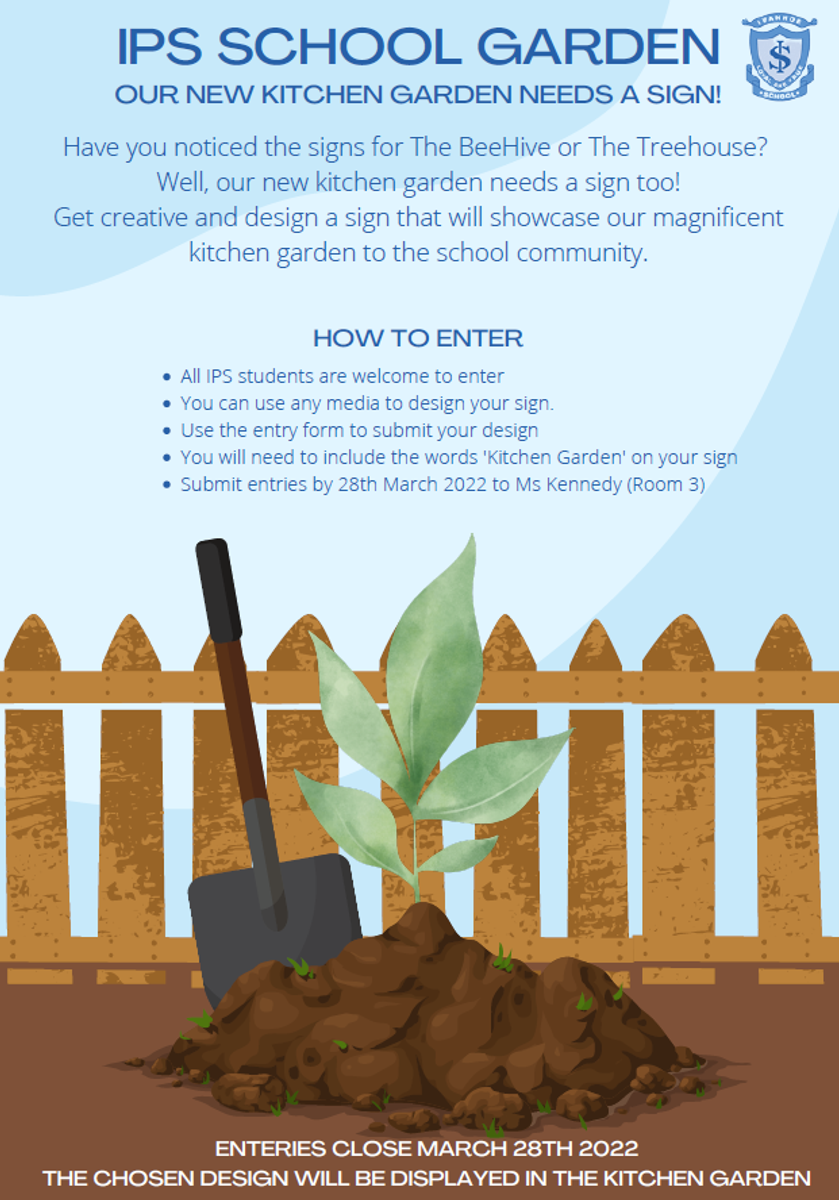

OUR NEW KITCHEN GARDEN NEEDS A SIGN & ENTERIES CLOSE MARCH 28TH 2022! THE CHOSEN DESIGN WILL BE DISPLAYED IN THE KITCHEN GARDEN
You have all probably seen the signs for The Beehive, The Treehouse, The Cubby House and The Play House? Well, our new kitchen garden needs a sign too! Get creative and design a sign that will showcase our magnificent kitchen garden to the school community. The template is in the attachment.
More details on the Student Voice page of this newsletter.
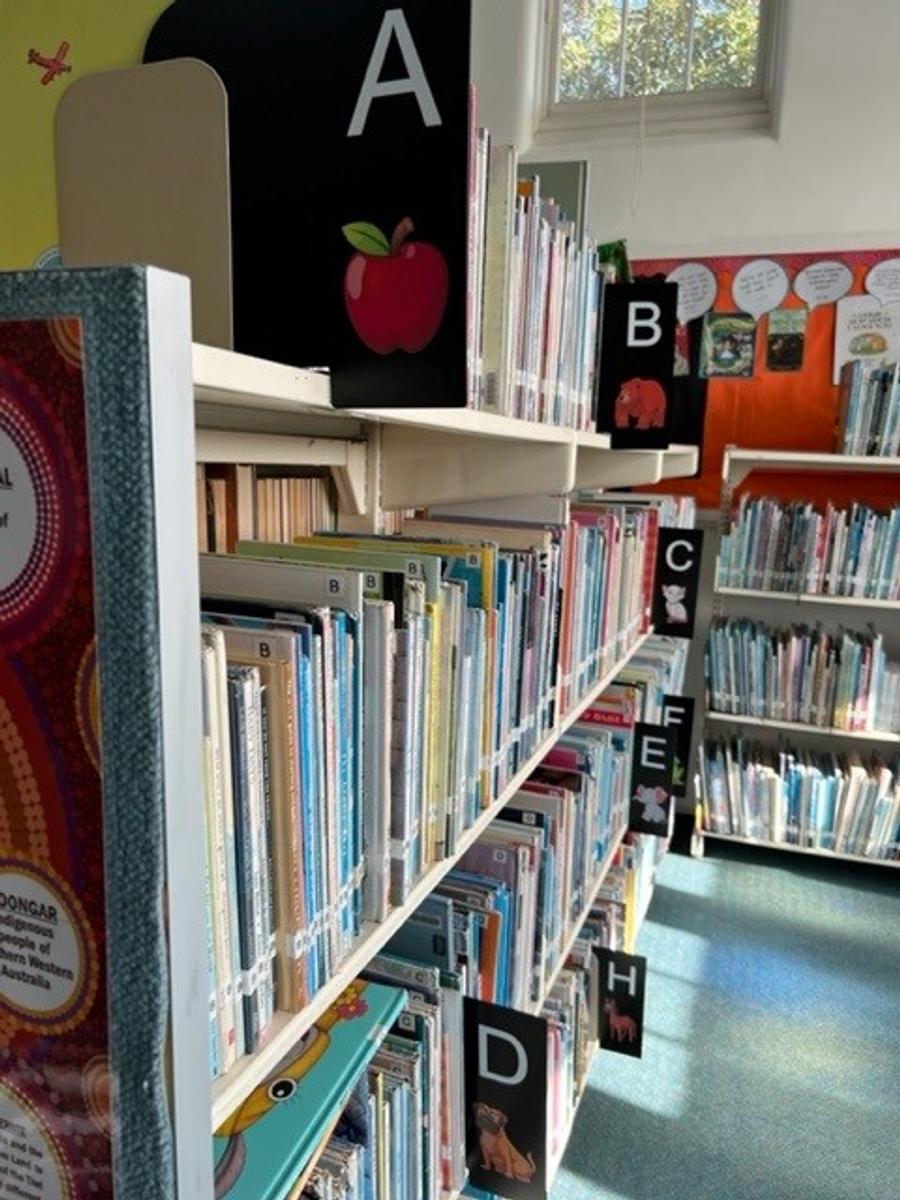

Janet is always doing something amazing in the library. She has been organising some books for the new street library down near The Beehive and more recently creating some new signs in the library to help our young readers find and choose books.
Thank you to the families who have made a tax deductable donation to the school's library fund. Name plaques have been organised, printed and will soon be attached to the inside front cover of a book in our library collection.
We focus on positive behaviours and good citizenship. Everyone has the right to feel safe at school. Our School Values are Confidence, Independence, Persistence, Resilience and Respect.
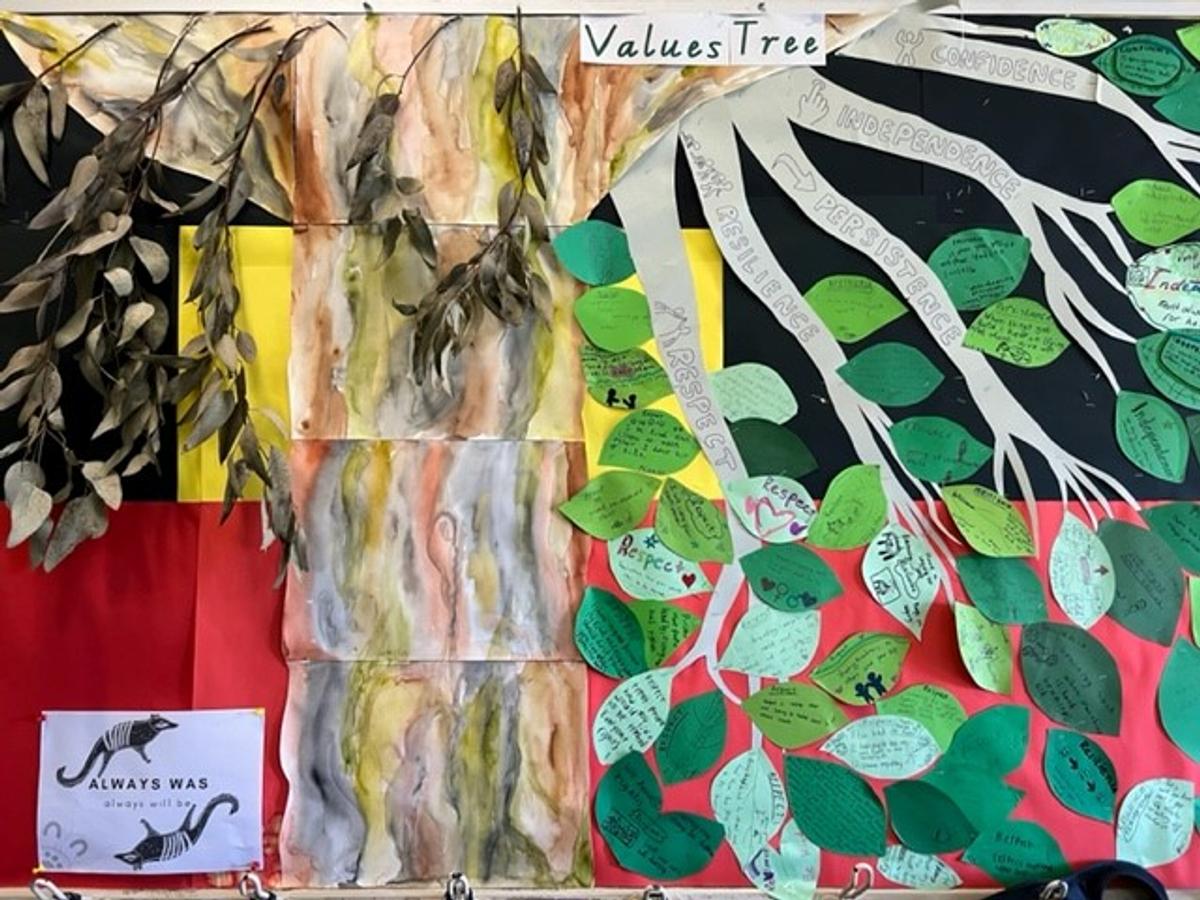
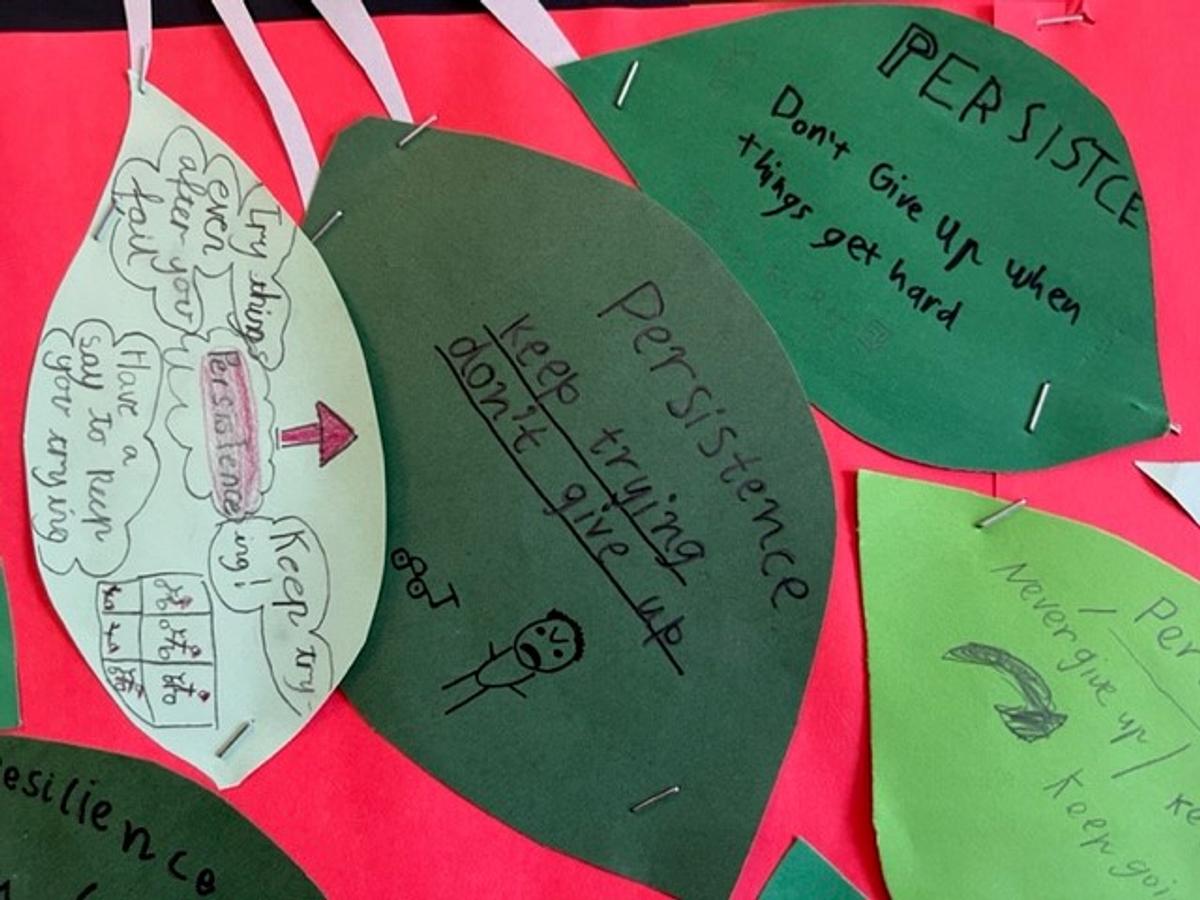
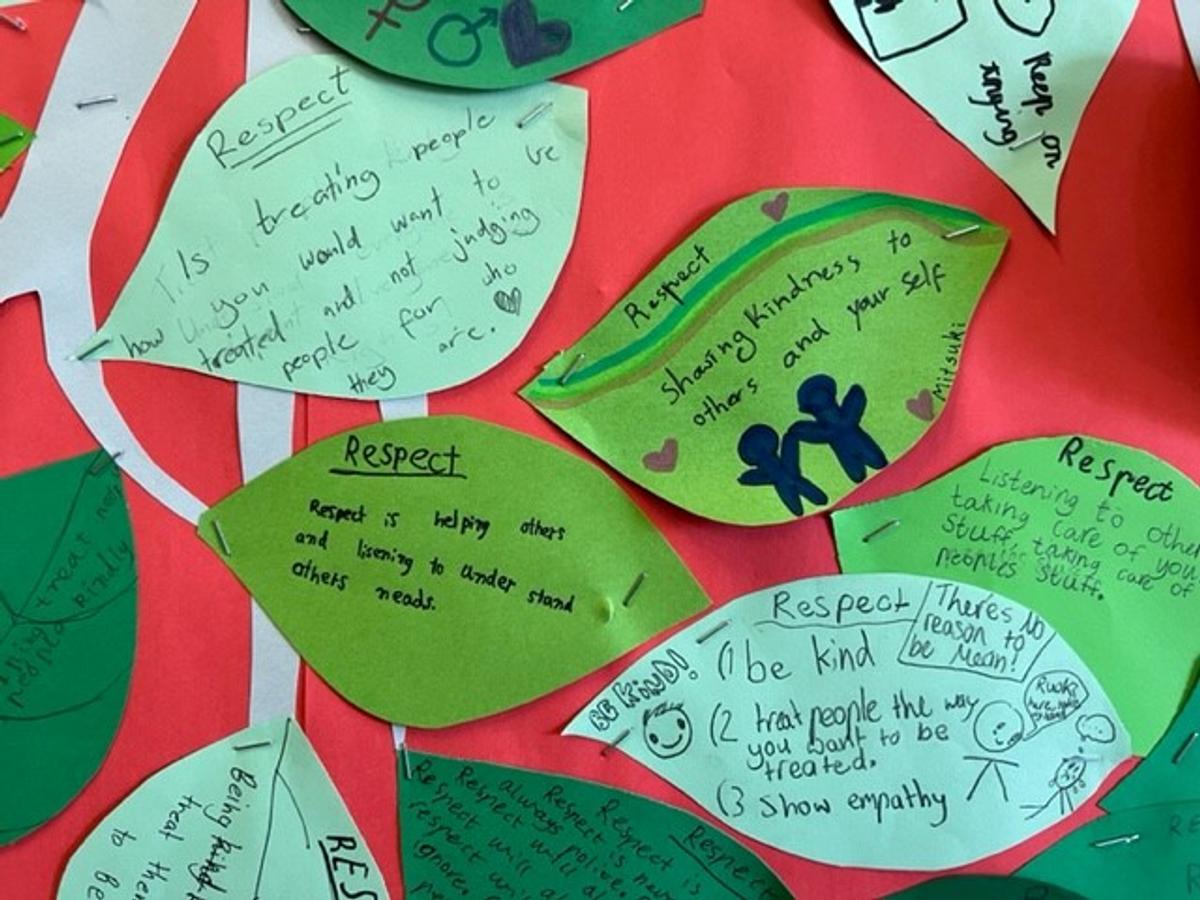
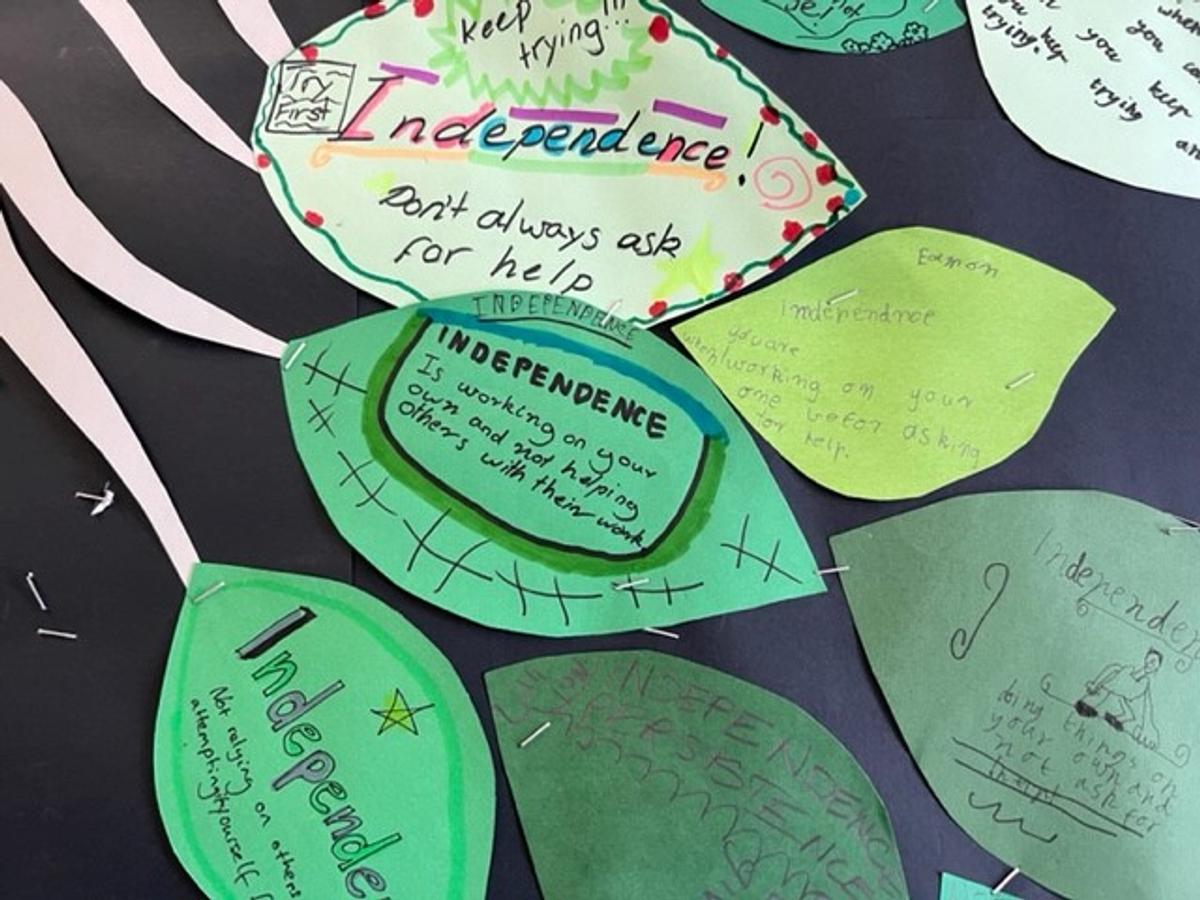
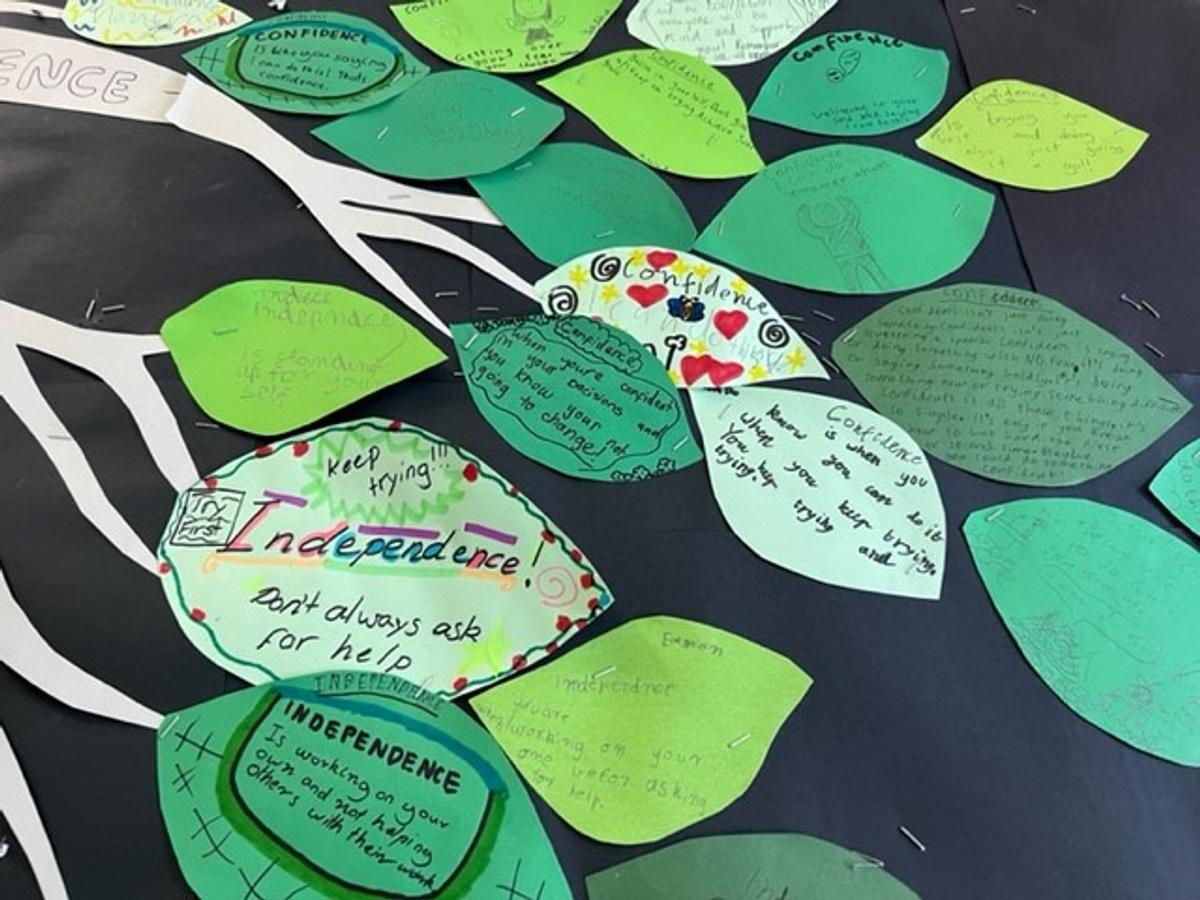
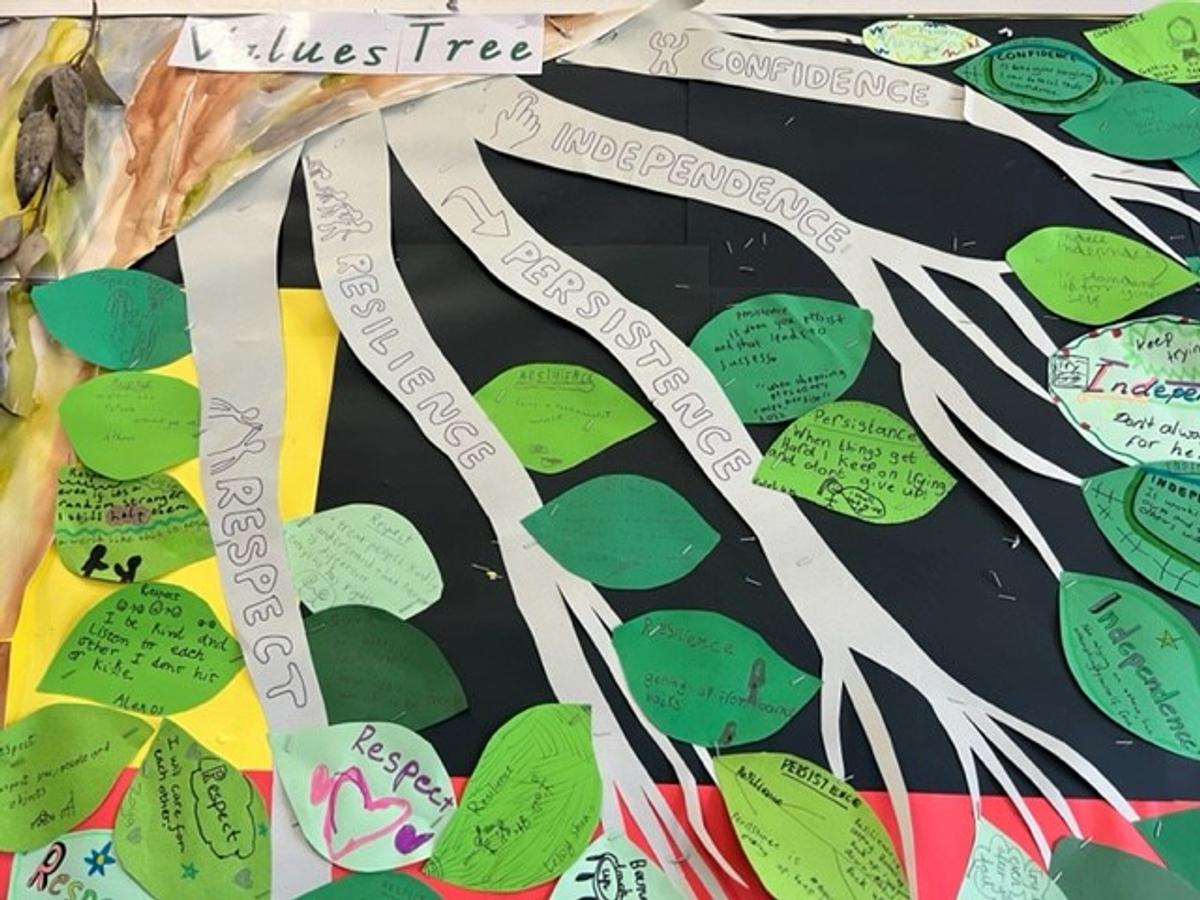






It is up to all of us to bring our values to life and present them in a way that makes sense. Here are some examples. (Pictures from the Year 4 Values Tree)
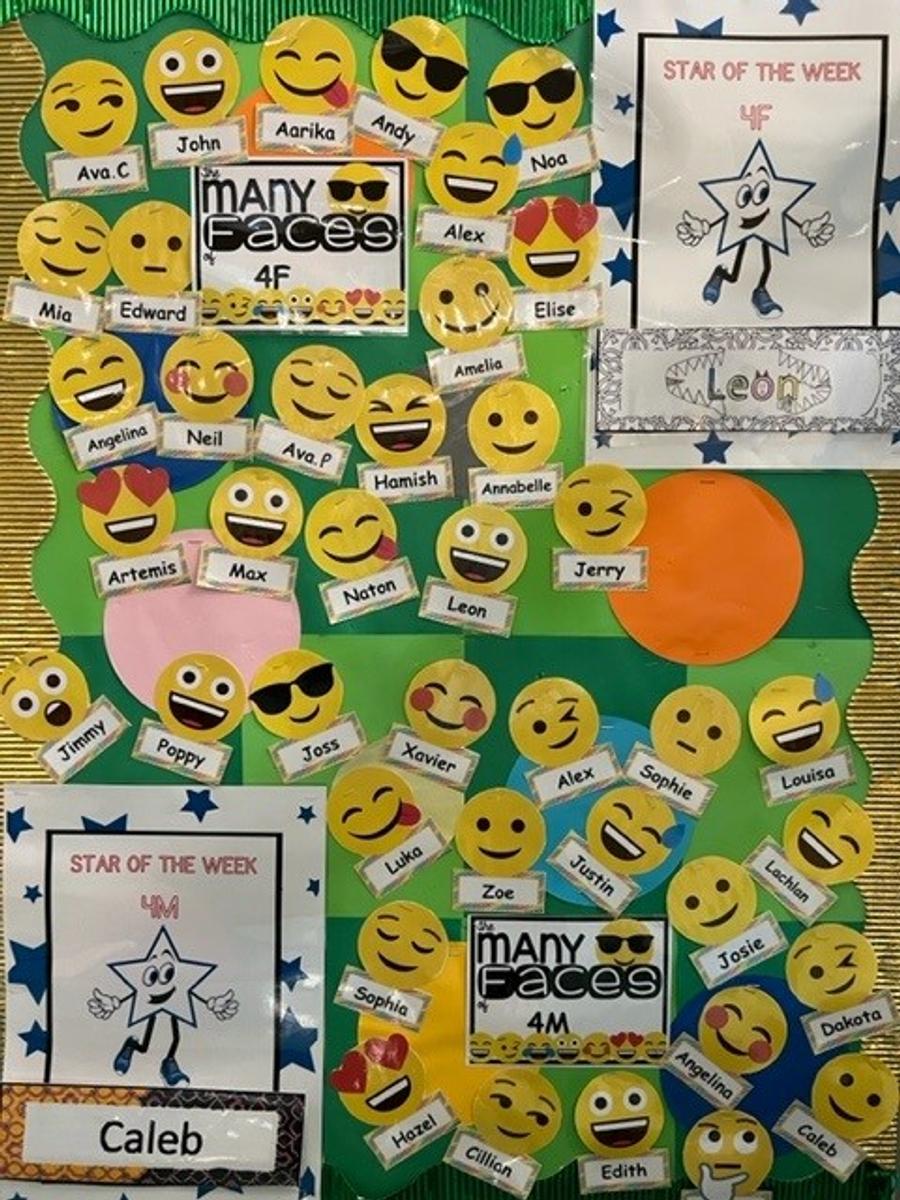

Persistence is not giving up, having more than one go at something, trying again when you get something wrong or just practicing to do your best.
Resilience - Resilient people often feel good about themselves. There is a difference between people who bounce back easily and those who get frustrated. If you can learn to bounce back you’ll do better at everything in life.
Confidence - Self-confidence is the belief in yourself and in your abilities. That you can do it. When you experience success, you feel good inside and you want to do better.
Independence – our aim is to ensure that every student is able to develop into an adult capable of looking after themselves, to thrive on the challenges that life throws at us, to experiment sensibly with risks and develop your own ways of doing things successfully.
Respect - is thinking and acting in a way that shows others you care about their feelings and their well-being.
Our stars are those that demonstrate our school values and set an example to our community . Behaviours that disrupt learning and teaching will not be tolerated.
Every year IPS holds a welcome to IPS picnic. This is a great occasion to catch up with old friends and make some new ones. If you are new to the school, I hope you'll come along, bring a picnic rug and a few drinks and enjoy the company of the community. If you don’t have time to assemble your own picnic, the PFA has organised food trucks and the canteen will be open. Thanks PFA.
Ordering picnic food from the canteen.
"Hello IPS families I am looking forward to seeing you all at the welcome picnic . I have included a menu on MY SCHOOL CONNECT It is under the heading of Ivanhoe welcome picnic March 18.
If anyone would like to pre order you can do so by going into the app .If you don’t already have the app you can make an account by following the steps .I will also have an eftpos facility available on the night .You can contact me on 0413047049 if you need anything clarified or are having trouble".
Thank you Annette (canteen )
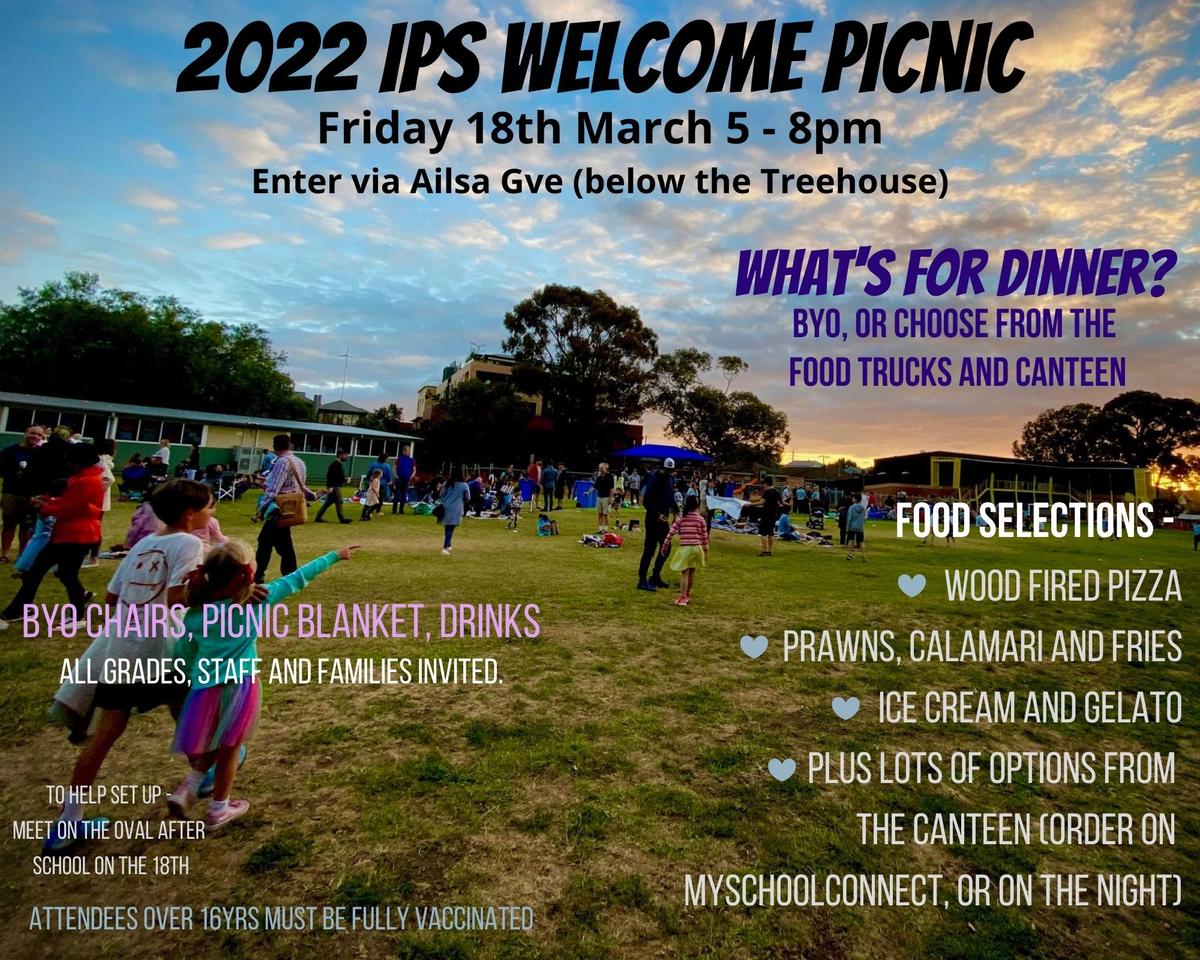

Masks at the picnic? Wear a mask when not socially distancing etc but there will be plenty of space to spread out. Some teachers and staff will no doubt attend for a while so please say "hello". (We don't bite :-) Please make sure you supervise your own children as we all appreciate being able to relax and talk to you too.
Another great PFA organised event is coming to the Ivanoe Bowls Club. Money raised supports IPS programs and facilities. Check "What's afoot" on the Community News page of this newsletter or see the attached flyer.
Research shows that families are the most significant influence on their children’s learning, development, health, safety and wellbeing. Your family can play a key role in helping your child prepare for school, and then succeed when they reach school.
These practical activities will help your child develop excellent reading and writing skills and help them speak well and be a good listener.
Through everyday activities at home you can also help them develop their numeracy skills, such as calculating and using numbers, recognising patterns, and using language to develop mathematical understanding.
These literacy and numeracy activities are excellent opportunities for you to model key learning values such as enthusiasm, persistence and curiosity.
These tips and activities can also be used by a child’s older siblings and grandparents, or other relevant people in a child’s life, to help develop their literacy and numeracy skills.
Discussing the content and meaning of books is an important part of reading. Chat about the book before, during and after reading, and encourage your child to share their ideas and to ask questions about the book.
Here are some questions you can ask before, during and after reading the book:
Recess and Lunchtime Play : The three key skills to making and maintaining friendships.
Friendship skills include sharing, taking turns, cooperating, listening and sorting out disagreements. Your child can practise friendship skills by playing with you and also with other children. Sometimes you might need to help sort out friendship difficulties.
Last week I asked you to consider sending your child with a book or (not special) toy to occupy themselves. At recess today I saw a great many students playing imaginative games and participating in activities or reading books that they had clearly brought from home. Thank you.
Mark Kent
Principal
* Ways to Help Your Child Make Friends in School

